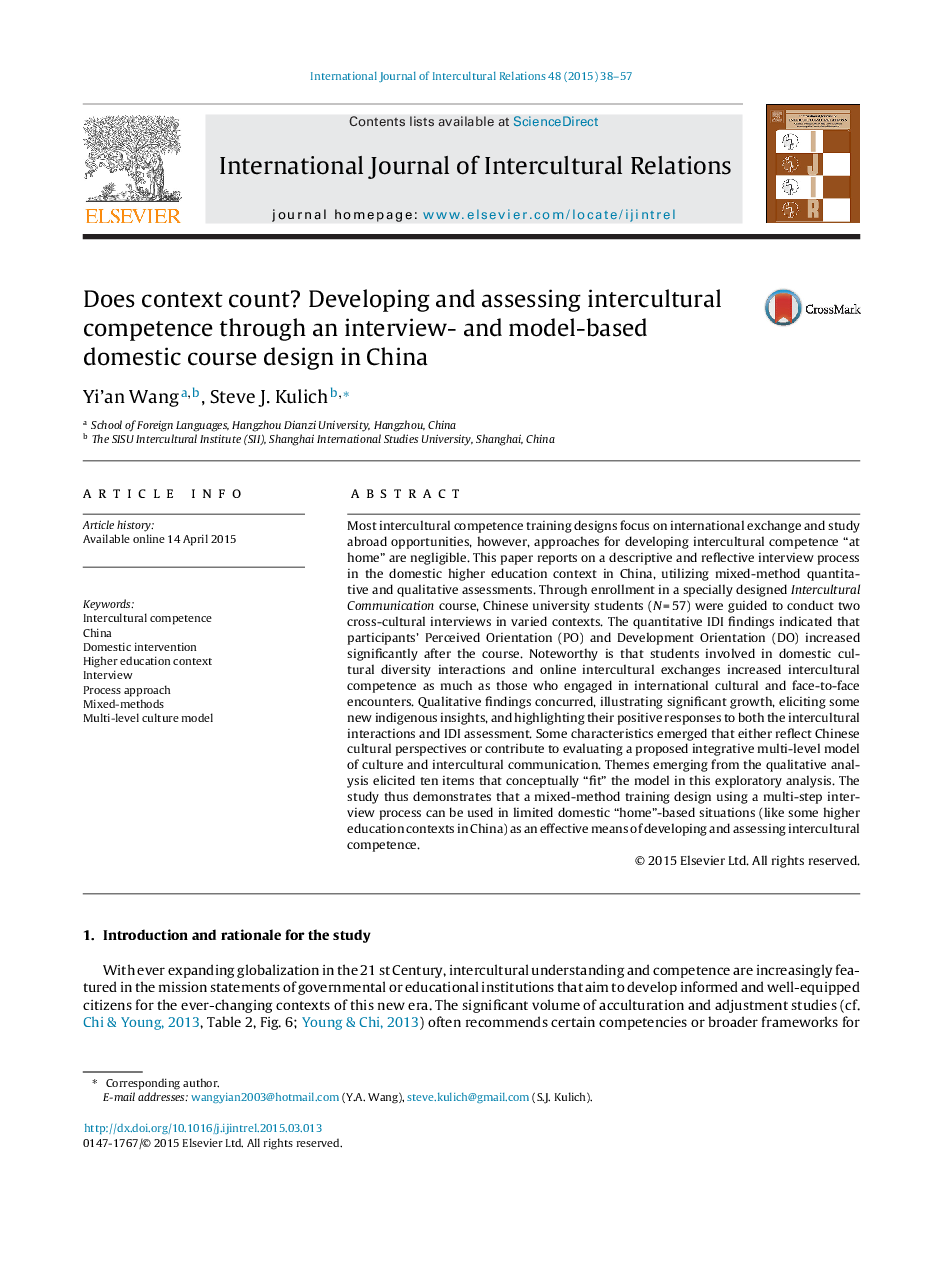| Article ID | Journal | Published Year | Pages | File Type |
|---|---|---|---|---|
| 946958 | International Journal of Intercultural Relations | 2015 | 20 Pages |
Abstract
Most intercultural competence training designs focus on international exchange and study abroad opportunities, however, approaches for developing intercultural competence “at home” are negligible. This paper reports on a descriptive and reflective interview process in the domestic higher education context in China, utilizing mixed-method quantitative and qualitative assessments. Through enrollment in a specially designed Intercultural Communication course, Chinese university students (NÂ =Â 57) were guided to conduct two cross-cultural interviews in varied contexts. The quantitative IDI findings indicated that participants' Perceived Orientation (PO) and Development Orientation (DO) increased significantly after the course. Noteworthy is that students involved in domestic cultural diversity interactions and online intercultural exchanges increased intercultural competence as much as those who engaged in international cultural and face-to-face encounters. Qualitative findings concurred, illustrating significant growth, eliciting some new indigenous insights, and highlighting their positive responses to both the intercultural interactions and IDI assessment. Some characteristics emerged that either reflect Chinese cultural perspectives or contribute to evaluating a proposed integrative multi-level model of culture and intercultural communication. Themes emerging from the qualitative analysis elicited ten items that conceptually “fit” the model in this exploratory analysis. The study thus demonstrates that a mixed-method training design using a multi-step interview process can be used in limited domestic “home”-based situations (like some higher education contexts in China) as an effective means of developing and assessing intercultural competence.
Related Topics
Social Sciences and Humanities
Business, Management and Accounting
Business and International Management
Authors
Yi'an Wang, Steve J. Kulich,
